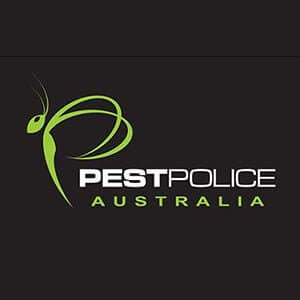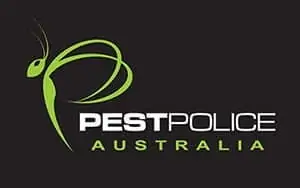It wouldn’t be inaccurate to say that the pest control industry has become a little outdated. But like other industries that are constantly evolving, developing, and expanding, some pest control companies, including us, attempt to alter our approaches to pest management and control quite a little each year. The most recent technical, technological, and theoretical developments in the sector must be followed by pest control companies for us to be truly effective.
Today’s industries, like pest control, are always looking for new ways to provide efficient services in keeping with emerging trends. Every year, there will undoubtedly be a few exhilarating new adjustments to how pest control is carried out on every property, including yours!
But before we go over the new trends in pest control management and control, let’s take a quick look at how the Covid-19 affected the pest control market globally.
The Pest Control Market During The Rise of Pandemic
The COVID-19 pandemic had a negative impact on the world economy, resulting in a decline in GDP and a shift in global consumer purchasing patterns. However, the COVID-19 pandemic had a mixed impact on the worldwide pest control market. The COVID-19 pandemic has presented new opportunities and challenges for the major industry players. Due to areas badly afflicted by the coronavirus, there was variance in company business. Nonetheless, important players working in the pest control industry saw an overall improvement in the business.
Business growth was mostly attributed to altered market dynamics and assistance from governmental agencies that began providing subsidies to major participants in the pest control market. Because of increased demand from individuals in places like Europe and South Africa, businesses that provide pest control services like disinfection and purification have seen growth.
People are increasingly turning to pest management services due to the recent increase in dengue fever cases in South East Asia and COVID-19 infections. The Australian Environmental Pest Managers Association’s (AEPMA) efforts to advance and improve the sector during the pandemic have also led to recognising the pest control market as an essential industry.
Additionally, AEPMA has assisted regional leaders by implementing a Code of Best Practices for disinfection connected to pest management services throughout the Australian region. Several major market participants are employing various business tactics, including product launches, significant business expansions, partnerships, and acquisitions, to manage their pest control businesses and survive the pandemic.
Pest Management and Control Latest Trends
Industry modernisation, along with the new opportunities and challenges brought by Covid-19, most pest control industries today are utilising new methods and techniques for pest management and control. These are the latest trends causing a stir in the pest control industry today:
Advanced Field Technology
Earlier technical developments in the pest control sector were not centered on field integrations. However, field technology will be used in exciting new ways when it comes to the pest control trends of 2022. Even though many homeowners and property managers may not be familiar with the latest field technology, they will undoubtedly appreciate the improved pest control effectiveness it brings.
There are countless prospects for advancement. Smart sensors are one type of field equipment that can recognise when a critter enters a trap. Some sophisticated traps can even use electricity to identify the species, keep track, or eliminate the nuisance. The trap even has the ability to send an email notice seeking service after the pest control has been applied. That is genuine efficiency that helps both pest control experts and property owners!
Mobile Data-Capture Devices
The use of mobile data-capture devices, which may record information about the location and type of pest issues in real-time and store it in a central online database that facility managers and pest management specialists can access, is now possible in the field of pest control. Additionally, this made it simple to track various locations, facilitated more prompt and appropriate actions, and enabled more focused pest-control measures.
CRISPR Technology
The CRISPR gene editing tool is a technique for changing important genes that control insect reproduction and sex determination. Researchers have developed a novel, efficient control method using CRISPR technology that is safe, self-limiting, and scalable for a particular species. It might be created and applied to various insect pests and disease vectors. Target species can be safely suppressed and even wiped off using this technology.
Insect Growth Regulators (IGRs)
Synthetic insect hormones known as “insect growth regulators” (IGRs) can be used as insecticides to control populations of nuisance insects that are hazardous to humans and other animals. IGRs interfere with the moulting process, preventing an insect from maturing. Many IGR products contain additional insecticides that kill adult insects in addition to the IGR. Furthermore, IGRs are typically less harmful to people.
Biorational Products
Pheromones, a chemical substance released into the environment by an animal, especially an insect or a mammal, affecting the physiology or behaviour of its other species, or living microorganisms, which have minimal negative effects on the environment and are nontoxic, are found in biologically based pesticide products or biorational products. The most efficient biorational insecticides are those based on Bacillus thuringiensis (Bt). These biorational insecticides can replace competitive chemical products prohibited in environmentally sensitive locations and export markets where there are serious concerns about food residue.
Rodent Birth Control
For the past few years, pest management has used birth control to control populations of pest species like pigeons. Rodent birth control may soon offer an efficient means of managing animals that reproduce prodigiously, like mice and rats, without negatively influencing many non-target species. Watch out for rodent birth control in the near future.
Green Products for Pest Control
Green alternatives are being employed more and more, as property managers and pest control businesses fully grasp the adverse impacts of pesticide abuse. As things stand, liberal pesticide applications will be a thing of the past by 2022. Despite being permissible in some circumstances, pesticides are no longer the first line of defence for pest control companies. When it comes to eliminating insect infestations, eco-friendly treatments with low toxicity and minimal environmental impact are prioritised. Additionally, there is an increase in natural products, particularly those for insects.
Built-In Pest Prevention
Today, lowering the risk of pest infestation is incorporated into the design of new buildings, including houses and businesses. For instance, termite barriers are a common feature of many new constructions. For instance, the infestation of insects or rodents is less likely to occur with synthetic materials. Additionally, modern home conditions are much less inviting for bugs to inhabit, thanks to improved ways of controlling moisture.
Integrated Pest Management (IPM)
Putting the pest in a larger context is a key component of the pest control method known as integrated pest management (IPM). It’s usually possible to develop a creative pest management remedy that has minimal side effects while also addressing the issue by considering the pest’s life cycle and habitat.
IPM pest control techniques are applied globally to strike a balance between eradicating pests and securely maintaining the ecosystem’s health. IPM practises aim to decrease pesticide use and rely more on non-toxic alternatives to pest management.
IPM is one of the best ways to manage properties and prevent pests out of your neighbourhoods, which is why IPM practices will be employed more frequently in 2022 and beyond.
So what can IPM solutions look like? IPM techniques include clearing out trash, unclogging excessively clogged drains, cutting back on branches, and general maintenance. It is typically a multifaceted strategy that allows for more specific targeting of pest management for maximum impact. IPM techniques can defeat infestations before they even begin by removing the factors of a habitat that promote the formation of a pest population.
Eco-Friendly Solutions
The time has come for all businesses, including pest control companies, to consider how their operations influence the environment. One-time, chemically-reliant exterminations are no longer the backbone of pest control. Smart pest treatment businesses frequently use exclusion-based, educational, and holistic techniques. Not only do these methods of pest management work better, but they are also more environmentally friendly.
The market standard for pest elimination now includes environmentally friendly techniques like integrated pest management (IPM). You should seek pest control companies that employ exclusion-based, smart pest management techniques in the present and the future.
Client-Focused Customisation Options
The era of a single, all-purpose “solution” to pest control is over. With cheese and a spring trap, you can’t completely eradicate every kind of mouse infestation. Innovative pest control companies collaborate with their clients to develop customised solutions based on their particular needs.
Every step of their problem-solving process, a good pest control company will take into account any special considerations you may have. Nowadays, effective pest management involves more than just getting rid of pests. It also involves understanding the client’s business and finding ways to support it.
What’s the bottom line? You want a company that is flexible and up to date with trends when it comes to your residential, commercial, or industrial pest management and treatment. With flexible, modern methods, companies like Pest Police Australia can assist you in permanently keeping pests out of your property. Contact us now to learn more about our pest control services.

